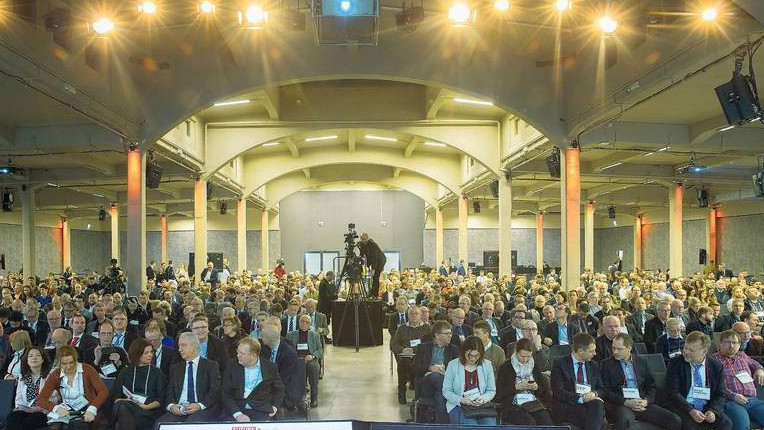Research speed dating in Dresden: 100 top researchers each presented their latest findings in three minutes.

Science Match is something like speed dating, only for researchers. For the first time, the Tagesspiegel Berlin invited this format to Saxony. 100 top researchers presented their ideas to an audience of 1000. The special thing about it is the three minutes of speaking time. In a very short time, you get a cross-sectional overview of Saxon research, in some cases even of top national research. When a renowned media partner and the Free State of Saxony invite you to a professional program and the highest public presence is to be expected, you bow to the three-minute dictate. Two professors from the Zittau/Görlitz University of Applied Sciences were also present in Dresden.
Bon mot at the beginning:
What do German trade fair visitors say? "How much does it cost?"
The Saxon asks: "How does it work?" That's how Saxon works.
It is not without reason that the Free State of Saxony devotes a great deal of attention to this event. Saxony's universities and colleges, including its research institutions, are Saxony's assets for the future.
"This is a showcase for Saxony, this is a showcase from Saxony,"
says Minister President Stanislaw Tillich (CDU), himself a graduate engineer in construction and transmission technology.
"If we want to keep up with global competition, we must succeed in keeping the entire process in Saxony: From the idea to series production."
The Minister President, who was in attendance, spoke of Saxony's success and offered encouragement for the coming years. Sebastian Turner, host and "Tagesspiegel" editor from Berlin, has to admit in his welcoming speech,
"He is probably the only social scientist present here".
Yes, cutting-edge research in Saxony takes place primarily in the engineering and natural sciences, including medicine. The model state of German industrialization is also ahead in the computer age with its technical universities and research institutions. But the smaller universities from the periphery are also present. Incidentally, there is no talk of science spaces on the podium.
Professor Tobias Zschunke and Professor Alexander Kratzsch will be taking part in the coveted first speaker block. Both confidently presented their research topics to the interested audience. The Zittau/Görlitz scientists also easily stay under three minutes. The audience asks questions during the meet-the-speakers session. They know each other, at least for some of the participants. Thanks to the Science Match, however, there are also many newcomers. Interested students, doctoral candidates, journalists, politicians and entrepreneurs, but also competitors.
What remains of Zittau/Görlitz from the Science Match? Not just a hand sketch in the PowerPoint presentation by Professor Tobias Zschunke 1. Because that is the eye-catcher. The small A-4 hand-drawn sketch with wind turbines, collectors, residential buildings, pipes, pumps and storage tanks ended up being the audience's favorite on the net.
Prof. Kratzsch presented the IPM's research results to date in relation to the intelligent integration of thermal energy storage systems in thermal energy systems with different rated outputs. The VA THERESA in the Zittau power plant laboratory plays a key role in this. The subsequent discussions showed the strong interest of various stakeholders from the Free State of Saxony in the research results in the field of thermal energy storage.
At the end of the day, the state capital bids farewell with a picturesque sunset. What will the next morning bring? Nobody can predict whether the future will bring success or failure for the 100 researchers. What iscertain, however, is that two projects from Zittau/Görlitz University of Applied Sciences are playing in the top league of top Saxon research. A not insignificant question from a speaker on the sidelines: "Everyone gets to PowerPoint, the question is: what comes next?"
Text: Frank Schneider
1 Prof. Dr.-Ing. habil. Tobias Zschunke spoke about "The vision of a decentralized storage power plant without fuel".
2 THERESA stands for thermal energy storage system. Prof. Dr.-Ing. Alexander Kratzsch spoke about its flexibilization.